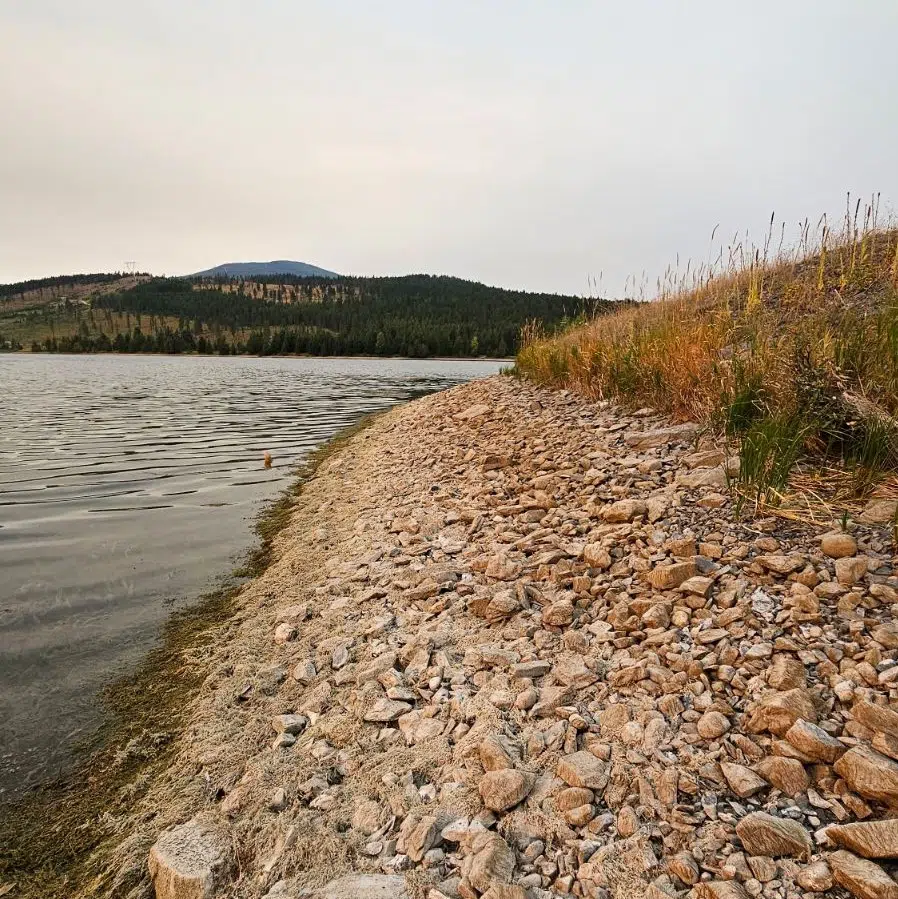A regional symposium held June 5 on Yaq̓ it ʔa·knuqⱡi’it First Nation territory brought together more than 50 delegates to tackle the growing challenges facing watersheds in Southeast British Columbia.
The “Without Water” Symposium convened Indigenous leaders, scientists, local governments, industry, and community members to discuss the impacts of drought, pollution, and climate change.
The event aimed to bridge knowledge systems and improve collaborative decision-making on water issues.
Located in the southeastern corner of B.C., the Elk River Watershed stretches approximately 220 kilometres from the Alberta border to Lake Koocanusa.
It provides drinking water, supports fish and wildlife, powers industrial and recreational activities, and holds deep cultural significance to Indigenous Nations in the region.
Yaq̓ it ʔa·knuqⱡi’it Councillor Kyle Shottanana opened the event with a speech on the sacred role of water, later telling CBC’s Daybreak Kamloops, “Everything around us has to do with water… ʔa·kxam̓ is q̓api qapsin – all living things.”
Joseph Yellow Horn, an environmental technician from Piikani Nation, praised the cross-sector dialogue.
“It’s refreshing to be in a group of like-minded people who care about the environment,” he said.
Elkford Mayor Steve Fairbairn warned that water security is becoming increasingly uncertain.
“People are worried,” he said.
“We need to break down the silos between organizations and share information freely.”
In the evening, the gathering expanded to include 50 more community members for dinner, a keynote, and a panel discussion.
Grand Chief Stewart Phillip, President of the Union of BC Indian Chiefs, delivered a forceful message calling for unified, urgent action.
“This is not a bystander movement,” said Phillip. “You have to show up, speak out, and stand up. And we have to do it together.”
A panel including representatives from Indigenous communities, science, local government, and industry answered community questions and emphasized the need for swift and collective solutions.
“Water is critical. Water is threatened,” said Dr. Stewart Rood, professor of environmental science at the University of Lethbridge.
“Everyone here, from different backgrounds, agreed on that.”
Dr. Stella Swanson, a Study Board member with the International Joint Commission, urged decision-makers to act.
“Just get on with it,” she said, receiving strong applause.
“It’s basic chemistry, physics, and common sense.”
The event was hosted by Yaq̓ it ʔa·knuqⱡi’it First Nation, Living Lakes Canada, and the Elk River Alliance as part of the Elk River Watershed Collaborative Monitoring Program.
“This was the largest and most collaborative event our program has ever organized,” said program manager Caitlin Henneker.
A video of the keynote speech will be posted in the coming weeks at elkrivercollaborative.ca/engagement.
Funding support for the event was provided by Yaq̓ it ʔa·knuqⱡi’it, Real Estate Foundation of BC, Pacific Institute of Climate Solutions, Indigenous Environmental Network, First Nations Health Authority, Western Mining Action Network, Steel River Group, Sitka Foundation, Columbia Power, and Fortis BC.









Comments